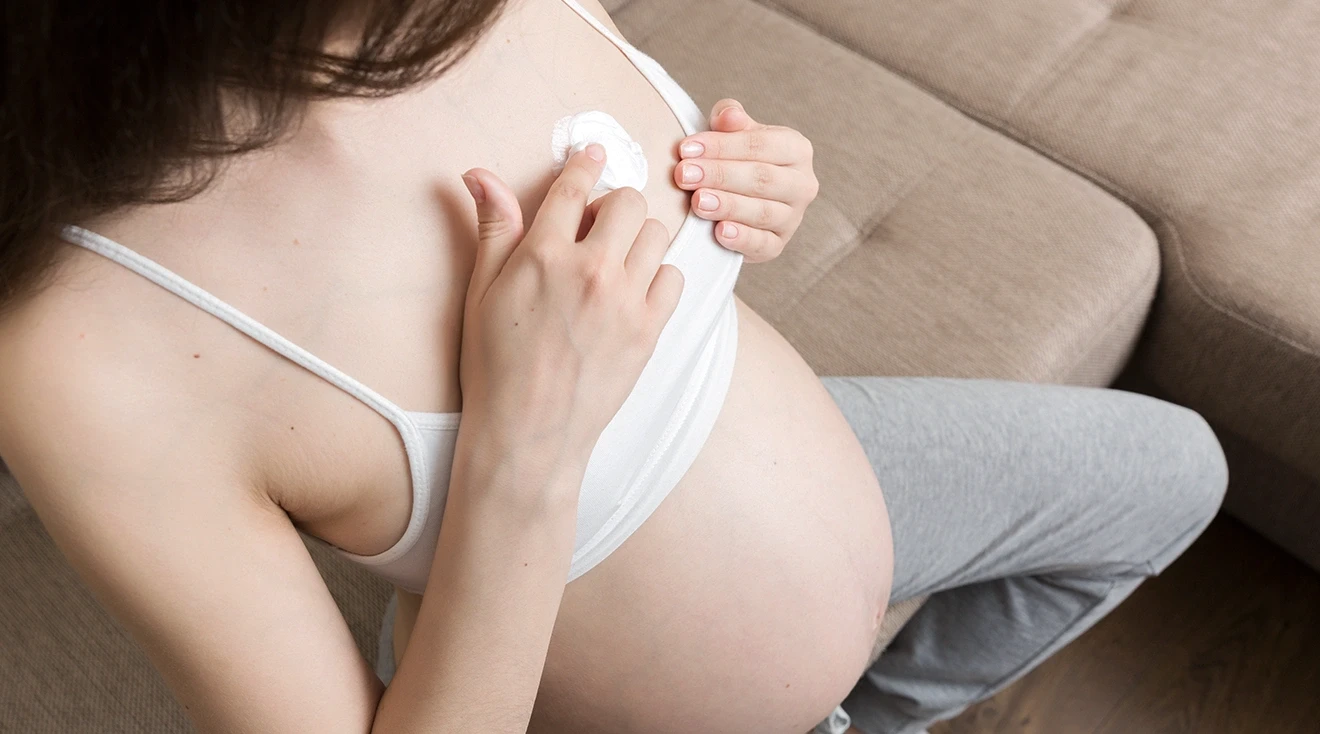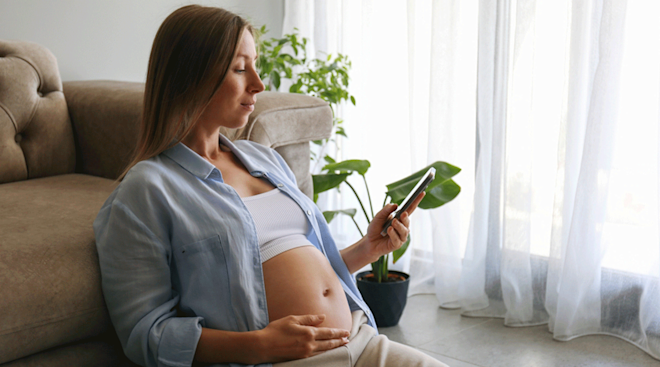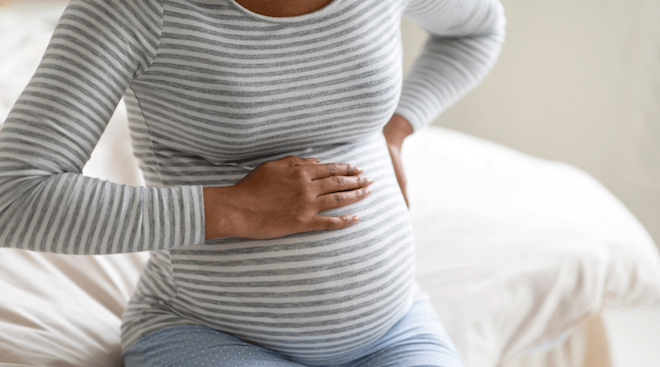How to Soothe Itchy Nipples During Pregnancy
While there’s understandably a lot of focus on the changes your belly experiences when you’re expecting, your breasts and nipples go through their own series of adjustments. They may even feel particularly itchy.
If you experience itchy nipples during pregnancy, don’t panic—this is more common than you might think. Still, it’s understandable to have some questions. So what’s up with those itchy nipples, and how can you get relief? Here’s what you need to know.
Not everyone experiences itchy nipples during pregnancy, but it’s normal and relatively common. That said, it’s difficult to say just how often this occurs. It’s likely that plenty of people experience it and neglect to mention it to their doctor, so it’s difficult to track exactly how many expectant moms go through this, says Julie Lamppa, APRN, CNM, a certified nurse midwife at Mayo Clinic.
There are a few potential reasons why you can get itchy nipples during pregnancy:
- Your breasts are growing. “Your breasts start to grow and get bigger, and there’s stretching and thinning of the skin,” says Christine Greves, MD, a board-certified ob-gyn at the Winnie Palmer Hospital for Women and Babies… “That can feel itchy.”
- Colostrum may irritate your nipples. Colostrum, the first milk your body makes in pregnancy, can start to leak from your breasts as early as 20 weeks, Lamppa points out. “As this milky substance dries on the nipples, it could cause some itching,” she says.
- Increased friction against your nipples. As your breasts and nipples grow, there’s an increased chance of friction inside your bra, says Gary Goldenberg, MD, founder of Goldenberg Dermatology in New York City.
- Eczema flare-ups. Goldenberg notes that stress or hormonal changes in pregnancy can cause a flare-up of eczema, which may make nipples itchy.
You can technically develop itchy breasts at any point in your pregnancy, says Greves. However, it tends to happen more often as your pregnancy progresses. “In my experience, this is more common in the latter part of pregnancy, as breast size increases due to weight gain and breast engorgement,” adds Goldenberg.
Your nipples may change when you become pregnant, but Greves says that itchiness isn’t really considered an early sign of pregnancy. It’s true that sore breasts may point to pregnancy, but having itchy nipples alone isn’t a reliable clue.
How to tell if itchy nipples are a sign of your period or pregnancy
If you happen to develop itchy nipples around the time your period is due, it’s unlikely to be a signal that you’re pregnant. That said, it’s common for some breast swelling to happen both when your period is due and when you’re pregnant. Suffice it to say, people who aren’t pregnant can experience nipple itching too. You’ll want to evaluate all your symptoms, then consider taking a pregnancy test. That’s the only way to know for sure.
There are a few things you can do to get relief if you’re experiencing itchy nipples during pregnancy.
- Use a gentle moisturizer. “Moisturizers, such as Aquaphor, can help soothe the itching,” Goldenberg says.
- Switch to a scent-free, gentle detergent. “Some women may experience more skin sensitivities or allergies during pregnancy, so be cautious with laundry detergent and soaps,” Lamppa says.
- Use a mild soap. Similar to detergents, soaps that have fragrances or other harsh chemicals can irritate the delicate skin on your nipples, Lamppa says.
- Apply a cool compress. Greves suggests wetting a cloth with cool water, squeezing out the excess liquid and placing the cloth over your nipples to soothe the area.
As tempting as it may be, avoid scratching itchy nipples during pregnancy. Greves says this can cause irritation and ultimately lead to even more discomfort.
In general, having itchy nipples during pregnancy is something you can manage on your own at home. “In more severe cases, a topical prescription cream may be needed,” Goldenberg says.
You’ll also want to consult your doctor if you happen to notice certain changes in your nipples or breasts. If there’s an atypical growth or a change in color or texture in one section of the nipple (rather than the entire area), it’s important to get it checked out by your dermatologist, says Joshua Zeichner, MD, director of cosmetic and clinical research in dermatology at Mount Sinai Hospital in New York. It’s also a good idea to see your doctor if you have pain or a rash associated with the itching, Lamppa adds.
Itchy nipples are common in pregnancy, but that doesn’t mean you should have to endure discomfort for the next few months. Talk to your doctor, if you’re not getting relief—and don’t hesitate to address any questions or concerns.
Please note: The Bump and the materials and information it contains are not intended to, and do not constitute, medical or other health advice or diagnosis and should not be used as such. You should always consult with a qualified physician or health professional about your specific circumstances.
Plus, more from The Bump:
Gary Goldenberg, MD, is the founder of [Goldenberg Dermatology in New York City, and an assistant clinical professor of dermatology at the Icahn School of Medicine at Mount Sinai Hospital in New York City. He earned his medical degree from Temple University School of Medicine in Philadelphia.
Christine Greves, MD, is a board-certified ob-gyn at the Winnie Palmer Hospital for Women and Babies in Orlando. She earned her medical degree from the University of South Florida College off Medicine
Julie Lamppa, APRN, CNM, is a certified nurse midwife at Mayo Clinic and the author of Obstetricks: Mayo Clinic Tips and Tricks for Pregnancy, Birth and More.
Joshua Zeichner, MD, is the director of cosmetic and clinical research in dermatology at Mount Sinai Hospital in New York, where he also earned his medical degree.
Learn how we ensure the accuracy of our content through our editorial and medical review process.
Navigate forward to interact with the calendar and select a date. Press the question mark key to get the keyboard shortcuts for changing dates.




















































